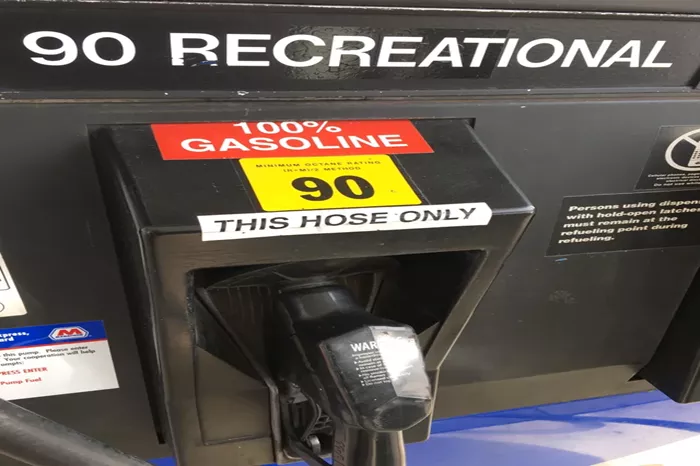Recreational gasoline, also known as rec gas, is a specialized type of fuel specifically formulated for certain engines that require ethanol-free gasoline. It is a 90-octane gasoline that does not contain ethanol, making it distinct from many other types of fuel available on the market. The absence of ethanol in recreational gasoline provides several advantages, particularly for engines and equipment that are susceptible to damage from ethanol-blended fuels.
Features
One of the key features of recreational gasoline is its ethanol-free composition. Ethanol, commonly added to gasoline in various blends (such as E10, which contains 10% ethanol, and E15, which contains 15% ethanol), can cause a range of issues for specific types of engines. The lack of ethanol in recreational gasoline provides several benefits:
Longer Shelf Life: Recreational gasoline has a longer shelf life compared to ethanol-blended fuels. Ethanol can absorb moisture from the air, leading to phase separation where water and ethanol separate from the gasoline. This process can degrade fuel quality and cause engine performance issues. Without ethanol, recreational gasoline remains stable for a longer period, making it ideal for engines that are not used frequently.
Reduced Corrosion: Ethanol is known to be corrosive to certain metals and rubber components within engines. Over time, ethanol can degrade these materials, leading to leaks, blockages, and other mechanical issues. Recreational gasoline, being ethanol-free, mitigates this risk, helping to preserve the integrity of engine components and reduce maintenance costs.
Better Compatibility with Older Engines: Many older engines were not designed to run on ethanol-blended fuels. Using such fuels in these engines can cause significant performance and durability problems. Recreational gasoline is better suited for these older engines, ensuring smoother operation and longevity.
Uses
Recreational gasoline is commonly used in a variety of equipment and vehicles where ethanol-blended fuels can cause issues. The main uses include:
Marine Equipment: Boats and other watercraft benefit greatly from recreational gasoline. Ethanol can attract moisture, which is particularly problematic in marine environments where water exposure is inevitable. Using recreational gasoline helps prevent engine problems caused by water contamination.
Small Engines: Recreational gasoline is ideal for small engines found in lawn mowers, snow blowers, chain saws, and generators. These engines are often used intermittently and can suffer from fuel degradation when ethanol-blended gasoline is used. Recreational gasoline’s longer shelf life ensures that these engines run smoothly when needed.
Power Equipment: Water pumps, tillers, and other power equipment also benefit from recreational gasoline. These engines are often exposed to varying environmental conditions and require a fuel that remains stable and non-corrosive.
See also: What Is E85 Fuel?
Advantages
Recreational gasoline offers several advantages over ethanol-containing gasoline:
Better Storage: Recreational gasoline can be stored for longer periods without degrading. This is crucial for equipment that is used seasonally or infrequently, as it ensures the engine will start and run properly even after long periods of inactivity.
Safer for Certain Engines: Engines that were not designed to handle ethanol-blended fuels are safer when using recreational gasoline. This reduces the risk of engine damage and associated repair costs.
Enhanced Engine Performance: Without the presence of ethanol, recreational gasoline can provide more consistent engine performance. Ethanol can cause engines to run leaner, potentially leading to overheating and damage. Recreational gasoline helps maintain optimal engine conditions.
Comparison with Other Gasolines
When comparing recreational gasoline to other common ethanol-containing gasolines, several differences and considerations come into play:
E10 and E15 Gasoline: E10 gasoline contains 10% ethanol, while E15 contains 15% ethanol. These blends are widely used due to their renewable nature and their contribution to reducing greenhouse gas emissions. However, the presence of ethanol can lead to issues such as phase separation, corrosion, and compatibility problems with certain engines. Recreational gasoline, being ethanol-free, avoids these issues entirely.
Fuel Efficiency: Ethanol has a lower energy content compared to pure gasoline. This means that ethanol-blended fuels generally provide slightly lower fuel efficiency. Recreational gasoline, with no ethanol content, can offer marginally better fuel efficiency, which is particularly beneficial for engines used in recreational and small-scale applications.
Engine Longevity: Engines that frequently use ethanol-blended fuels may experience more wear and tear due to ethanol’s corrosive properties. Recreational gasoline helps extend engine life by reducing the corrosive effects and maintaining cleaner fuel systems.
Environmental Impact: While ethanol-blended fuels contribute to reducing carbon emissions and dependence on fossil fuels, recreational gasoline does not offer these environmental benefits. However, its advantages in preserving engine health and performance make it a preferred choice for specific applications.
Why Some Engines Need Recreational Gasoline
Certain engines are particularly susceptible to the adverse effects of ethanol, making recreational gasoline a necessary choice. These engines include:
Older Engines: Many older engines were designed before ethanol-blended fuels became common. They lack the materials and design features needed to handle ethanol’s corrosive effects, making recreational gasoline a safer option.
Small Engines: Small engines, such as those in lawn equipment and generators, often sit unused for extended periods. The longer shelf life of recreational gasoline prevents fuel degradation and ensures these engines start reliably when needed.
Marine Engines: Marine engines are exposed to high humidity and water, increasing the risk of phase separation and water contamination with ethanol-blended fuels. Recreational gasoline avoids these issues, providing more reliable performance in marine environments.
High-Performance Engines: Some high-performance engines require precise fuel formulations to maintain optimal performance. Recreational gasoline’s ethanol-free composition ensures consistent fuel quality and engine performance.
Conclusion
Recreational gasoline is a specialized fuel designed to meet the needs of engines that are sensitive to ethanol. Its ethanol-free composition provides numerous benefits, including longer shelf life, reduced corrosion, and better compatibility with older and small engines. While it may not offer the environmental benefits of ethanol-blended fuels, recreational gasoline ensures reliable engine performance and longevity, making it an essential choice for specific applications.
Related topics:
What Is Fuel Oil Used For In Homes?

